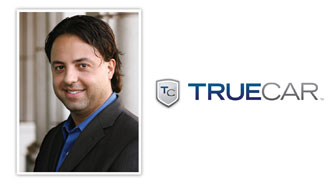TrueCar: Gas-Price Hike Leads to Lower Transaction Prices

In light of gas-price increases, shoppers gravitated toward small cars and compact SUVs during January, which pushed transaction prices down just a bit, according to TrueCar.com.
This downward trend is likely to persist should the increases carry on at the fuel pump, the site indicated.
Specifically, TrueCar.com indicated that the transaction price for a new vehicle averaged $29,350 in the U.S. January’s level was off 0.5 percent year-over-year and increased modestly (0.2 percent) compared to December’s average price.
“Transaction prices dropped slightly in January as consumers purchased a relatively higher percentage of small cars and compact SUVs,” suggested Jesse Toprak, TrueCar’s vice president of industry trends and insights.
“If gas prices continue to rise, transaction prices could continue to decline, as consumers tend to shift purchases to smaller, more fuel-efficient vehicles,” he continued.
Breaking down the transaction pricing forecast by the eight OEMs listed by TrueCar, Hyundai had the largest increase in average transaction prices (up 3.4 percent) on a year-over-year basis, followed by Chrysler (2.4 percent). Meanwhile, Toyota had the largest decrease (down 1.8 percent).
Compared to December, Nissan and Chrysler tied for the heftiest increase in January (both up 1.1 percent), while General Motors was the only one whose transaction prices dropped sequentially (down 1.7 percent).
The following is a table provided by TrueCar.com detailing the transaction pricing forecasts of eight OEMs:
|
Transaction Pricing Forecast
|
|||||
|
Manufacturer
|
January 2011 Transaction Price
|
December 2010 Transaction Price
|
January 2010 Transaction Price
|
Percent Change January 2011 from January 2010
|
Percent Change January 2011 from December 2010
|
|
Chrysler
|
$28,894
|
$28,579
|
$28,210
|
2.4%
|
1.1%
|
|
Ford
|
$31,839
|
$31,622
|
$31,861
|
-0.1%
|
0.7%
|
|
GM
|
$34,067
|
$34,668
|
$34,034
|
0.1%
|
-1.7%
|
|
Honda
|
$24,912
|
$24,869
|
$25,103
|
-0.8%
|
0.2%
|
|
Hyundai
|
$20,680
|
$20,539
|
$20,006
|
3.4%
|
0.7%
|
|
Kia
|
$18,677
|
$18,595
|
$18,546
|
0.7%
|
0.4%
|
|
Nissan
|
$27,366
|
$27,064
|
$27,263
|
0.4%
|
1.1%
|
|
Toyota
|
$25,221
|
$25,048
|
$25,675
|
-1.8%
|
0.7%
|
|
Industry
|
$29,350
|
$29,277
|
$29,512
|
-0.5%
|
0.2%
|
Incentive Spending
Moving along, TrueCar also delved into incentive spending for the month. According to the site’s estimates, automakers spent an average of $2,576 on incentives during January.
This marks a 1.3-percent year-over-year hike and a 2.5-percent month-over-month drop.
Showing the largest year-over-year increase was Honda (up 45 percent) followed by Toyota (up 37.5 percent). Chrysler’s incentive spending climbed 2.8 percent and the remaining four OEMs in TrueCar’s data showed declines in incentive spending compared to January 2010.
On a month-over-month basis, Honda showed the largest decrease (down 6.2 percent). All of the seven OEMs expect for Hyundai/Kia — whose incentive spending climbed 9.9 percent — spent less on incentives than they did in December.
That said, Hyundai/Kia had the lowest incentive spending during January ($1,727) by more than $300 when compared to the other six major OEMs.
“Hyundai continues to take the automotive industry by storm,” Toprak pointed out. “They now spend the least amount on incentives per unit out of all major manufacturers helping improve their transaction price, while increasing market share.”
The following table from TrueCar details projections for January’s incentive spending:
SANTA MONICA, Calif. –
|
Incentive Spending Forecast
|
|||||
|
Manufacturer
|
January 2011 Incentives
|
December 2010 Incentives
|
January 2010 Incentives
|
Percent Change January 2011 from January 2010
|
Percent Change January 2011 from December 2010
|
|
Chrysler
|
$3,557
|
$3,759
|
$3,460
|
2.8%
|
-5.4%
|
|
Ford
|
$2,641
|
$2,686
|
$2,717
|
-2.8%
|
-1.7%
|
|
GM
|
$3,089
|
$3,226
|
$3,164
|
-2.4%
|
-4.2%
|
|
Honda
|
$2,074
|
$2,212
|
$1,430
|
45.0%
|
-6.2%
|
|
Hyundai/Kia
|
$1,727
|
$1,572
|
$2,105
|
-18.0%
|
9.9%
|
|
Nissan
|
$2,763
|
$2,808
|
$2,989
|
-7.6%
|
-1.6%
|
|
Toyota
|
$2,179
|
$2,245
|
$1,585
|
37.5%
|
-3.0%
|
|
Industry
|
$2,576
|
$2,642
|
$2,542
|
1.3%
|
-2.5%
|
Subscribe to receive our daily e-newsletter and never miss the latest industry news, trends, and insights across the used-car and remarketing space.


